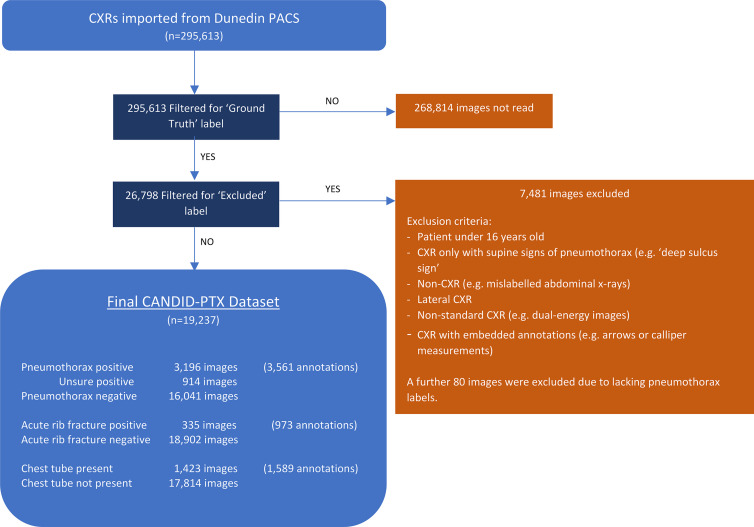Figure 1:
Curation process and final characteristics of the Chest x-ray Anonymised New Zealand Dataset in Dunedin–Pneumothorax (CANDID-PTX) dataset. A total of 295 613 chest radiographs (CXRs) were imported from the Dunedin Hospital picture archiving and communication system (PACS). A total of 26 798 of these images were reviewed by a tier 3 annotator (either a consultant radiologist or registrar) as per the study method; 7481 of these were subsequently excluded as per the exclusion criteria listed, and a further 80 were excluded because they lacked the appropriate “pneumothorax” or “no pneumothorax” labels. The remaining 19 237 images comprise the final dataset, with the numbers of pneumothorax, acute rib fracture, and chest tube annotations being displayed in the figure. Some images contained multiple regions of visible pneumothorax, or multiple fractures or tubes, which were also expressed in the figure.

